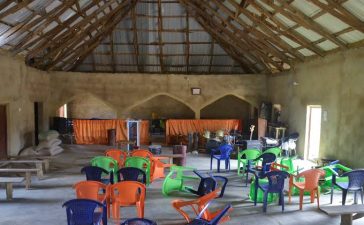The International Committee of the Red Cross (ICRC) has announced a major reduction in its 2026 operating budget, citing a steep decline in donor contributions and mounting financial pressure across the global humanitarian sector.
On Friday, the organisation revealed that its assembly had approved a budget of 1.8 billion Swiss francs ($2.2 billion) for 2026 a 17 per cent cut compared to the current year. The decision will also result in the equivalent of about 2,900 full-time job losses across its global workforce, which currently numbers more than 18,000 employees.
ICRC President Mirjana Spoljaric warned that the cuts come at a time of intensifying global crises and sprawling humanitarian needs.
“We face a dangerous convergence of escalating armed conflicts, significant cuts to aid funding, and a systemic tolerance for grave breaches of international humanitarian law,” she said.
She stressed that while the Red Cross remains committed to frontline humanitarian operations, the financial situation has made tough decisions unavoidable.
“The financial reality is forcing us to make difficult decisions to ensure we can continue to deliver critical humanitarian assistance to those who need it most.”
The announcement reflects a broader international funding downturn, with major donor nations scaling back contributions. Since the return of President Donald Trump to the White House at the beginning of the year, the United States historically the largest donor has drastically reduced foreign aid spending. Rising geopolitical tensions have also pushed several other nations to prioritise defence budgets over humanitarian assistance.
“As defence budgets surge, states must also put more effort and resources into preventing conflicts, defending the rules of war and providing humanitarian relief,” Spoljaric said, warning that failure to do so would bring “ever more and greater suffering.”
Even before the current financial crunch, ICRC noted that humanitarian needs had already outstripped available resources, with more than 130 active armed conflicts recorded around the world.
With a smaller budget, the Red Cross said it would be forced to prioritise operations in the world’s most critical and volatile regions. These include Sudan, Israel and the occupied Palestinian territories, Ukraine, and the Democratic Republic of Congo.
“No amount of humanitarian funding can match the intensity, duration, and scale of today’s conflicts,” Spoljaric said, urging governments to act swiftly to resolve conflicts, uphold international humanitarian law, and protect the ability of aid groups to save lives.







